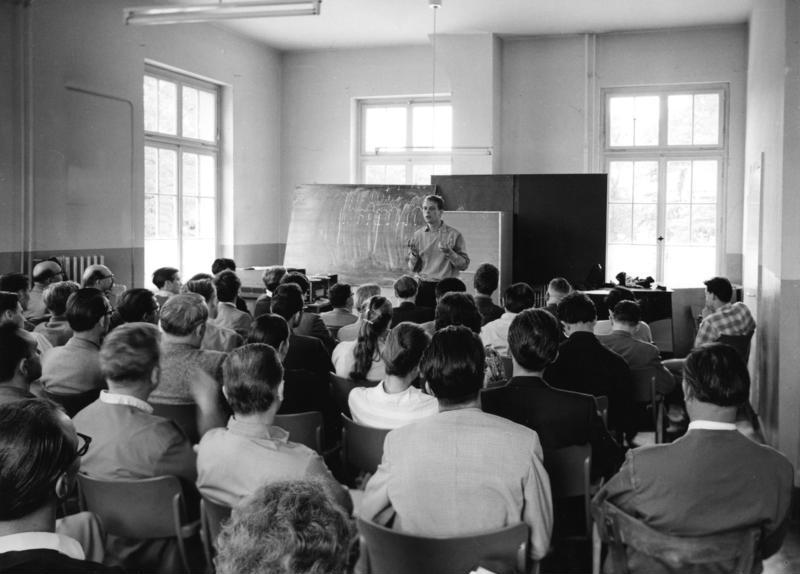Ausmultiplikation on:
[Wikipedia]
[Google]
[Amazon]
 ''Ausmultiplikation'' (literally, "multiplying-out") is a German term used by the composer
''Ausmultiplikation'' (literally, "multiplying-out") is a German term used by the composer
 ''Ausmultiplikation'' (literally, "multiplying-out") is a German term used by the composer
''Ausmultiplikation'' (literally, "multiplying-out") is a German term used by the composer Karlheinz Stockhausen
Karlheinz Stockhausen (; 22 August 1928 – 5 December 2007) was a German composer, widely acknowledged by critics as one of the most important but also controversial composers of the 20th-century classical music, 20th and early 21st-century ...
to describe a technique in which a long
Long may refer to:
Measurement
* Long, characteristic of something of great duration
* Long, characteristic of something of great length
* Longitude (abbreviation: long.), a geographic coordinate
* Longa (music), note value in early music mens ...
note
Note, notes, or NOTE may refer to:
Music and entertainment
* Musical note, a pitched sound (or a symbol for a sound) in music
* ''Notes'' (album), a 1987 album by Paul Bley and Paul Motian
* ''Notes'', a common (yet unofficial) shortened version ...
is replaced by shorter "melodic
A melody (from Greek μελῳδία, ''melōidía'', "singing, chanting"), also tune, voice or line, is a linear succession of musical tones that the listener perceives as a single entity. In its most literal sense, a melody is a combinat ...
configurations, internally animated around central tones", resembling the ornamental technique of divisions (also called "diminution
In Western music and music theory, diminution (from Medieval Latin ''diminutio'', alteration of Latin ''deminutio'', decrease) has four distinct meanings. Diminution may be a form of embellishment in which a long note is divided into a series ...
s") in Renaissance music. Stockhausen first described this technique in connection with his "opus 1", ''Kontra-Punkte
''Kontra-Punkte'' (Counter-Points, or Against-Points) is a composition for ten instruments by Karlheinz Stockhausen which resolves contrasts among six instrumental timbres, as well as extremes of note values and dynamic levels, into a homogeneo ...
'', composed in 1952–53, but in his later formula composition there is a related method of substituting a complete or partial formula for a single very long tone in a much slower, "more background
Background may refer to:
Performing arts and stagecraft
* Background actor
* Background artist
* Background light
* Background music
* Background story
* Background vocals
* ''Background'' (play), a 1950 play by Warren Chetham-Strode
Record ...
" projection of the formula. When this is done at more than one level, the result is reminiscent of a fractal.
Notes and references
Notes ReferencesSources
* * * Post-tonal music theory Musical techniques {{music-theory-stub